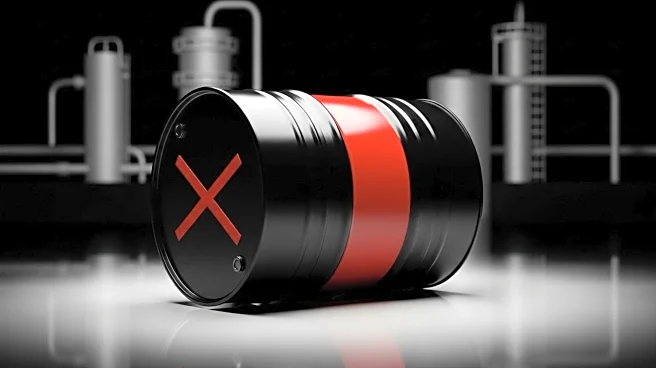What's Happening?
The United States has imposed sanctions on Serbia's main oil supplier, Petroleum Industry of Serbia (NIS), which is majority-owned by Russia's Gazprom Neft. This move comes as Serbia relies heavily on Russian gas and oil supplies, primarily distributed through pipelines in neighboring countries. The sanctions could lead to shortages of gasoline and heating oil in Serbia, especially as winter approaches. Serbian President Aleksandar Vucic has expressed concern over the 'extremely dire consequences' these sanctions could have on the country, affecting every citizen. Despite the sanctions, Serbia plans to continue discussions with both American and Russian officials to mitigate the impact.
Why It's Important?
The sanctions on Serbia's oil supplier highlight the geopolitical tensions between the United States and Russia, with Serbia caught in the middle. As Serbia seeks European Union membership, its refusal to join Western sanctions against Russia over the Ukraine invasion complicates its international relations. The sanctions could exacerbate existing domestic pressures on President Vucic, who faces ongoing anti-government protests. The situation underscores the broader implications of international sanctions on national economies and political stability, particularly for countries with strong ties to sanctioned entities.
What's Next?
Serbia will likely continue negotiations with the U.S. and Russia to find a resolution that minimizes the impact of the sanctions. The government may explore alternative energy sources or suppliers to ensure energy security. Additionally, the sanctions could prompt Serbia to reassess its foreign policy and economic strategies, potentially influencing its stance on EU membership and relations with Russia. The situation remains fluid, with potential developments in diplomatic talks and domestic responses.









